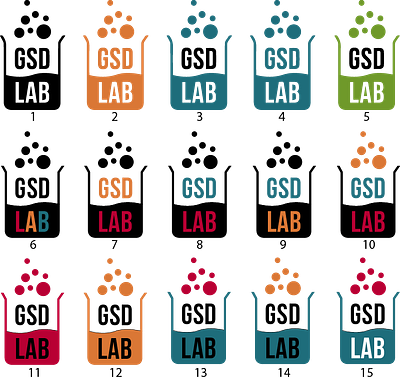
Teaching is not the last stop on your learning journey — it’s the first.
By Tiago Forte of Forte Labs
This post originally appeared on the Skillshare blog.
I created an online Skillshare class on productivity last year that has enrolled more than 8,000 students, and since then have become very passionate about helping others do the same.
But in talking to numerous people about teaching online, on topics ranging from bicycle repair to finding your chakras to hacking blood sugar to living as a digital nomad, I’ve noticed the same handful of misconceptions holding them back.
I want to demolish them once and for all, and encourage people with something to say to share their knowledge with the world.
#1 I’m not an expert
This belief fundamentally mistakes the nature of teaching in the digital age. It is no longer about knowing all the facts and answers — we have Google for that — its about being a passionate curator and a guide.

A curator pulls together content from many sources and carefully selects only the most relevant parts, saving you the time of sifting through mountains of information.
A guide understands that you can only learn by doing, and guides you along a path where you can make your own discoveries and mistakes.
It doesn’t take the world’s greatest expert to spend a few weeks or months researching a topic, curating only the best content, thinking of a simple project that demonstrates these strategies, and then guiding total novices on how to complete it. In fact, the world’s greatest expert on your topic is extremely unlikely to go through the trouble.
And let me tell you a secret: it is this very process of helping, advising, encouraging, and troubleshooting with your students that will give you true expertise. Teaching is not the last stop on your learning journey; it’s one of the first.
#2 I don’t have any original ideas
Having new ideas (assuming, first of all, that such a thing actually exists) has nothing to do with being a good teacher. There is so much good content out there on virtually any conceivable topic — instead of waiting for a creative epiphany, how about simply connecting people in need with tried and tested strategies?
Cite your sources, respect copyrights and trademarks, and include links to the originals, and you will be surprised that your sources will actually be grateful for the referral traffic. You are giving them for free the most effective form of marketing in existence: thought leader recommendations.
#3 I don’t have the right skills
The skills required to create an online class are the same ones many of us use every day on social media: taking pictures, making short videos, creating slides, writing text, and commenting on students’ projects.
The required tools are more accessible than ever: our smartphones can take high-quality photos and video, and most personal computers have basic image and video-editing software preinstalled.
If you want to take it up a notch (which I recommend), Skillshare classes themselves are the perfect way to acquire new capabilities quickly:
When I had no idea what creating a class entailed, I took (what else?) Skillshare’s own class on how to create a class. When I needed nice-looking slides, I took Tomas Bay’s class on slide design. When I needed a logo, I took Evan Huwa’s class on logo design. Courtney Eliseo helped me create a brand identity, Meg Lewis taught me how to use Photoshop, and Seth Godin gave me some incredible marketing tips. All for $9.95 a month.

The great thing about these classes is they are all project-based, so instead of creating a sample project just for fun, you will actually be creating a deliverable to use in your own class. As an extra bonus, you’ll be learning the best practices from teachers who have come before you.
#4 There’s already a class on my topic
Think about this: there is a group of people somewhere out there that you, and only you, are perfectly prepared to reach.
Maybe it’s the way you think, the way you explain things, the analogies and metaphors you use, the level of abstraction or practical application, the media you use, the project you pick, your tone and personality, the relative balance between text, photos, videos, and slides…the list of potential variations is literally endless.
You aren’t the very best in any single area, but that doesn’t matter. Absolutely no one has the exact combination of skills and perspectives that you have, and therefore no one is going to create exactly the same experience in the same way to reach the same group of learners.
I don’t know if this group is 50 people, 500 people, or 5,000, but in a world of 3 billion internet users and rising, finding a niche is easier than ever.
#5 I can’t take time away from my job/business/weekend/vacation/etc.
Creating a good online class is a significant commitment, let’s make no mistake.
To reach the levels of quality that are needed to enroll significant numbers and produce significant income will probably take more learning, experimentation, and hustling than you expect.
But to finish this list on a positive note, here are 5 reasons you should do it anyway:
- Don’t put it off because it will take a lot of time; that time will pass anyway. Might as well get something useful out of it.
- We are in the very beginning stages of an online education movement I believe will change the world. Get in on the ground floor while competition and expectations are low, and be part of the revolution.
- An online class is the best business development tool I have ever encountered: it is the perfect way to build your thought leadership and spread your ideas far and wide, while at the same time building credibility and a lead qualification process that is far more effective than cold-calling.
- You are probably already creating online content for yourself or your business (blog, Instagram photos, Facebook posts, Medium posts, etc. — why not get paid for it?
- Selling online content is one of the most effective ways for freelancers and subject matter experts to create passive income. Even if it’s small, it goes a long way toward balancing out the cyclical nature of contract work.
There is someone out there that is waiting to hear what you have to say. With the immense knowledge, resources, and skills you have at your disposal comes the great responsibility of making your voice heard — luckily we live in an age where discharging that responsibility is easier (and more profitable) than ever.
Follow us for the latest updates and insights around productivity and Building a Second Brain on Twitter, Facebook, Instagram, LinkedIn, and YouTube. And if you're ready to start building your Second Brain, get the book and learn the proven method to organize your digital life and unlock your creative potential.
- POSTED IN: Curation, Education, Entrepreneurship
